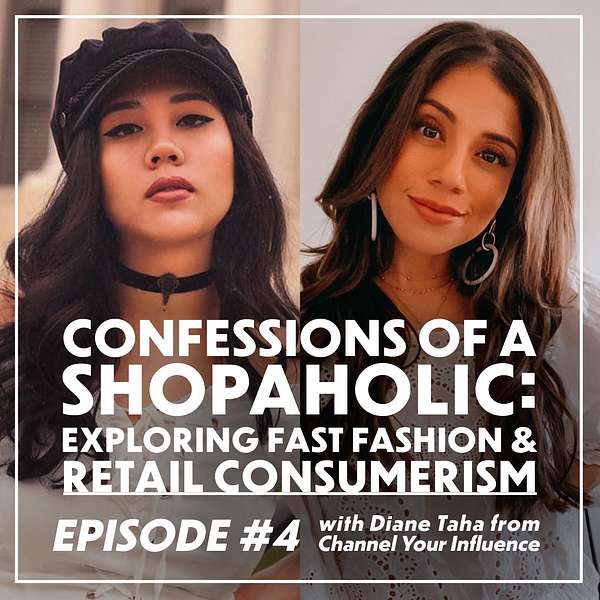
The Baller on a Budget
Want to break up with hyper-consumerism and FOMO so you never have to keep up with the Kardashians again? The Baller on a Budget is your daily dose of relatable stories about the endless hustle and helpful tips that move you towards financial independence. Share a laugh with us over coffee as we fight capitalism by achieving our dream life on a budget.
The Baller on a Budget
(#4) Confessions of a Shopaholic: Exploring Fast Fashion & Retail Consumerism with Diane Taha
•
Season 1
•
Episode 4
Today on The Baller on a Budget podcast, Diane Taha, influencer & host of the Channel Your Influence podcast are discussing our consumer habits & shopping sins in a tell-all fashion confessional. In this episode, Diane & I talk about the cost of building a wardrobe, the exclusionary practices of luxury brands, corporate activism, sexist marketing & much more.
Diane has been an influencer since 2013 & is a full-time social media manager. She also hosts the podcast Channel Your Influence, where she discusses the climate of influencer marketing.
In This Episode:
- How Diane began her career as a beauty & fashion influencer (1:43)
- What is “high-low” fashion? (3:38)
- Designer brands are more of a status symbol than style (7:20)
- How much of Diane’s wardrobe is designer (8:02)
- The attainability of luxury brands (10:56)
- Why do we strive to consume luxury? (16:10)
- How online fast fashion brands were popularized by fast fashion (18:19)
- Diane’s main issue with fast fashion (19:52)
- How often do we buy clothes that don’t fit but still keep them? (23:18)
- The percentage of our wardrobes that we actually wear (24:45)
- Why fast fashion sizing is a breeding ground for eating disorders & body dysmorphia (25:45)
- What are capsule wardrobes? (26:54)
- Will our current wardrobes age along with us? (30:39)
- Why designer bags & shoes hold their value (31:26)
- Small changes consumers can make to reduce environmental impact (34:02)
- How retail mark-ups & sales are exploitative (38:08)
- Preventing buyer’s remorse & FOMO (40:45)
- Consuming new items like underwear with less environmental impact (43:16)
- Why class divide makes ethical consumption costly for working-class people (48:20)
- Using influence to advocate for change (49:06)
- The impermanence of canceling corporate activism (51:13)
- Is the real power of ethical change within consumers or corporations? (55:38)
- The majority of household consumer decisions are made by women (58:19)
- How shifting the responsibility of ethical consumption to consumers contains subtle sexism (1:00:07)
- The female empowerment argument vs. the male gaze (1:02:50)
- How Millennial & Gen Z women are financially independent of men (1:07:33)
- Do your consumer habits sabotage your financial goals? (1:09:00)
- How do we identify ourselves outside of what we look like, how we produce, & how we consume? (1:12:29)
Where you can find Diane Taha:
Sources:
- Fast fashion & the social media culture of consumption with the Baller on a Budget (Episode 20 Channel Your Influence Podcast)
- Deluxe: How Luxury Lost Its Luster (by Dana Thomas) - affiliate link
- Statistics On the Purchasing Power of Women (Girl Power Marketing)
- Who Makes the Call at the Mall, Men or Women? (WSJ)
- The Commodification of Kim Kardashian's Plastic Surgery (@kardashian_kolloquium on Tiktok)
How do we identify ourselves outside of what we look like, how we produce, & how we consume?